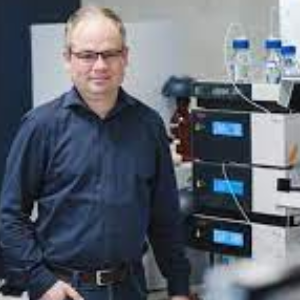Abstract:
The success of cisplatin (cis-[PtCl2(NH3)2]) in cancer therapy started an unflagging interest in development of new drugs based on transition metal complexes. Among other metals, iron and ruthenium complexes play a prominent role. In our previous work we prepared a series of ferrocene derivatives bearing either substituted or unsubstituted saturated five- and sixmembered nitrogen-containing heterocycles. The most promising ferrocene derivatives showed cytotoxicity against ovarian cancer cell lines in submicromolar concentrations. For their determination, we have developed a novel electrochemical method based on differential pulse voltammetry capable to detect ferrocene derivatives in low μM range in cancer cells. The method is rapid, simple and requires only inexpensive instrumentation. Recently, we have prepared carbohydrateruthenium conjugates showing low cytotoxicity, but clear antimigratory and antiinvasive activity representing an important prerequisite point for their further evaluation as potential antimetastatic agents (submitted to Applied Organomet. Chem.). In present work we tried to combine cytotoxic activity exerted by ferrocenes along with migrastatic effects, which showed ruthenium complexes. Thus, ferrocene-ruthenium cyclopentadienyl conjugates were synthesized and tested as a new class of potential anticancer drugs. Interestingly, these compounds retained both their cytotoxic and migrastatic activity. Moreover, due to the fact that these conjugates contain redox-active ferrocene, we were able to determine their cellular uptake by differential pulse voltammetry. In conclusion, 1-benzyl and 1,1´-dibenzylferrocenes could be easily coordinated with Cp*Ru+ fragment to form hetero di- and trinuclear complexes. These compounds due to their cytotoxic and migrastatic properties represent a promising prerequisite for the development of new anticancer drugs.




